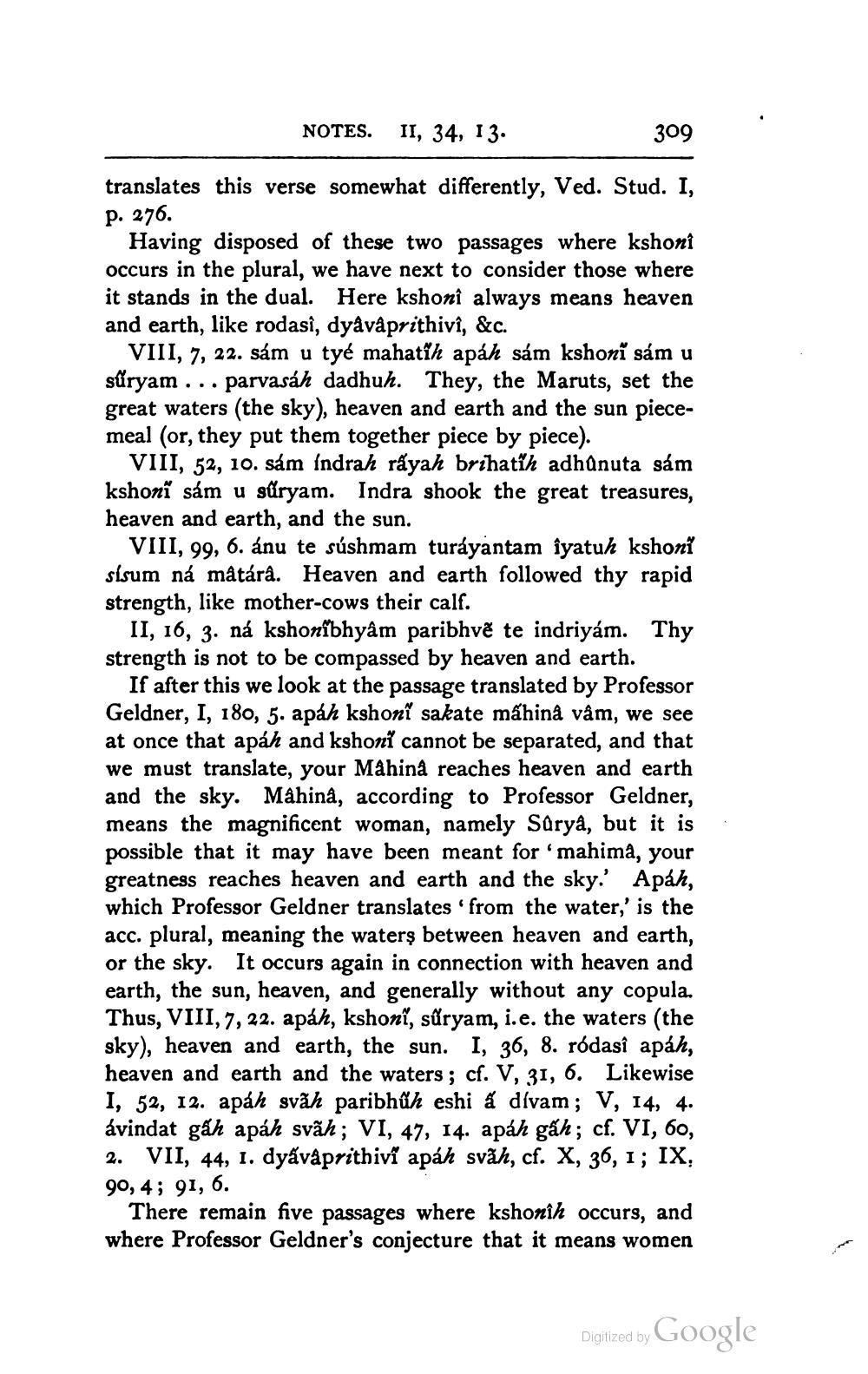________________
NOTES. II, 34, 13.
309
translates this verse somewhat differently, Ved. Stud. I, p. 276.
Having disposed of these two passages where kshoni occurs in the plural, we have next to consider those where it stands in the dual. Here kshoni always means heaven and earth, like rodasi, dyâvâprithivî, &c.
VIII, 7, 22. sám u tyé mahatih apáh sám kshoni sám u süryam ... parvasáh dadhuh. They, the Maruts, set the great waters (the sky), heaven and earth and the sun piecemeal (or, they put them together piece by piece).
VIII, 52, 10. sám indrah rayah brihatih adhūnuta sám kshoni sám u süryam. Indra shook the great treasures, heaven and earth, and the sun.
VIII, 99, 6. ánu te súshmam turáyantam îyatuh kshoni sisum ná måtára. Heaven and earth followed thy rapid strength, like mother-cows their calf.
II, 16, 3. ná kshonibhyam paribhvě te indriyám. Thy strength is not to be compassed by heaven and earth.
If after this we look at the passage translated by Professor Geldner, I, 180, 5. apáh kshoni sakate máhinå våm, we see at once that apáh and kshoni cannot be separated, and that we must translate, your Mahinà reaches heaven and earth and the sky. Mahinâ, according to Professor Geldner, means the magnificent woman, namely Surya, but it is possible that it may have been meant for 'mahima, your greatness reaches heaven and earth and the sky.' Apáh, which Professor Geldner translates 'from the water,' is the acc. plural, meaning the waters between heaven and earth, or the sky. It occurs again in connection with heaven and earth, the sun, heaven, and generally without any copula. Thus, VIII, 7, 22. apáh, kshoni, süryam, i.e. the waters (the sky), heaven and earth, the sun. I, 36, 8. rodasî apáh, heaven and earth and the waters; cf. V, 31, 6. Likewise I, 52, 12. apáh svāh paribhứh eshi a dívam; V, 14, 4. ávindat gåh apáh svãh; VI, 47, 14. apáh gáh; cf. VI, 60, 2. VII, 44, 1. dyavaprithivi apáh sváh, cf. X, 36, 1; IX, 90, 4; 91, 6.
There remain five passages where kshonih occurs, and where Professor Geldner's conjecture that it means women
Digitized by
Digitized by Google




